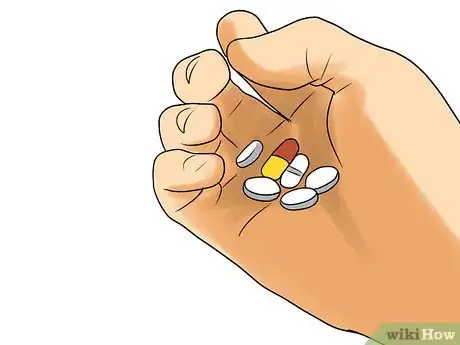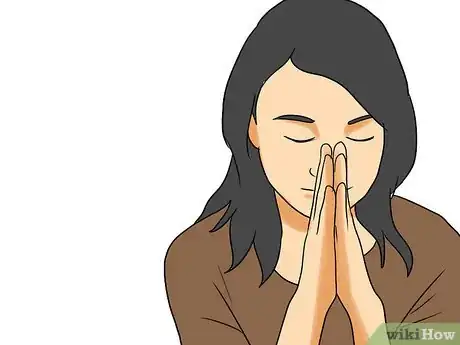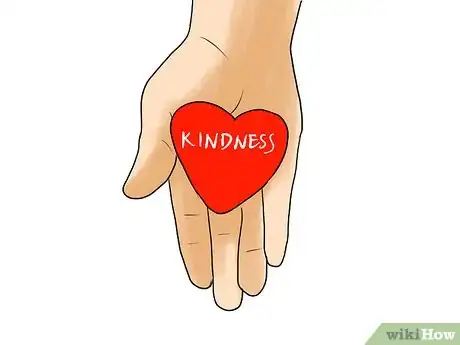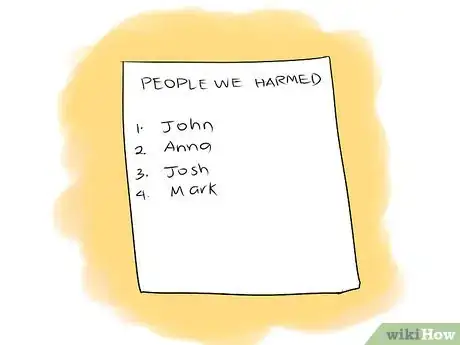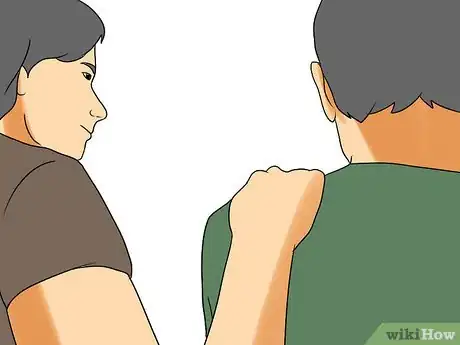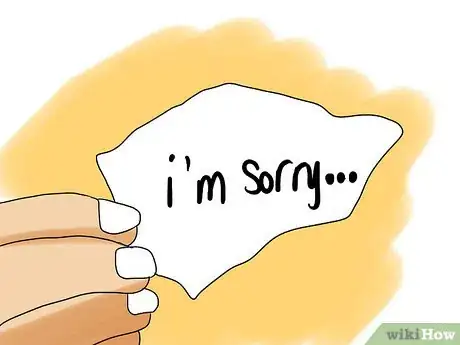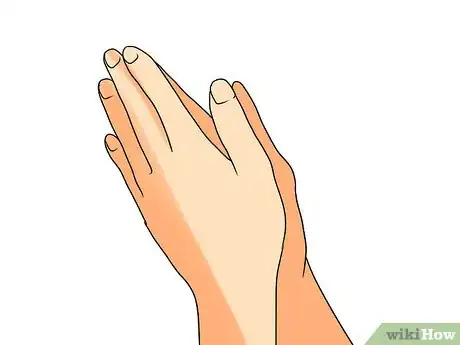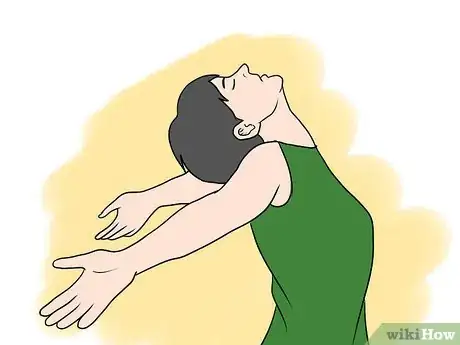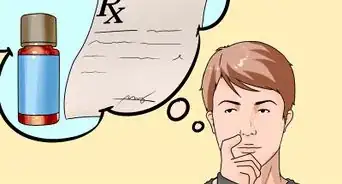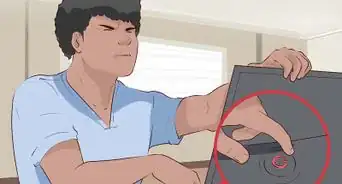X
wikiHow is a “wiki,” similar to Wikipedia, which means that many of our articles are co-written by multiple authors. To create this article, 19 people, some anonymous, worked to edit and improve it over time.
There are 11 references cited in this article, which can be found at the bottom of the page.
This article has been viewed 65,053 times.
Learn more...
The 12 steps are used by AA, NA, OVA, GA, EA, CA, CMA, SALSA, AL-ANON, and other anonymous 12-step recovery groups. This article sets out the key 12 steps to help you gain a better understanding of what these steps involve.
Steps
-
1Admit that you are powerless over your addiction—that your life has become unmanageable. Addiction is a disease. Denial is part of the disease that tells us we do not have a problem. You are powerless when the driving force of your life is beyond your control. Your inability to manage your life is the outward evidence of your powerlessness. When you accept this, you will have surrendered and can begin to move on to recovery.[1]
-
2Believe that a power greater than yourself could restore you to sanity. A power greater than yourself can change from situation to situation— it can be anything that makes you aware of the insanity of a situation if you act out on a defect or negative will. This power can be God or whatever higher power you choose.[2]Advertisement
-
3Make a decision to turn your will and your life over to the care of God or your higher power. Decision is an action: it is a beginning— a starting point. While the first two steps were reflective, requiring only acceptance, step three calls for affirmative action. The first step restores you physically; the second step restores you mentally; the third step restores you spiritually. This is about choosing to follow your chosen higher power.[3]
-
4Make a searching and fearless moral inventory of yourself. You do not have to be "fearless" to take a fearless inventory; you only need to be willing. Look at the characteristics that cause you or other people pain, whether that be guilt, fear, shame, anger and so on.[4]
-
5Admit to yourself, others, and to God or your higher power the exact nature of your wrongs. Remember that the second step says that you must do things differently if you want a different outcome. You must reach out in trust to be delivered from the insanity of your isolation. The two most important qualities you will get from doing this step are open-mindedness and willingness. You will realize that you are not alone.[5]
-
6Be entirely ready to have God remove all these defects of character. Living through steps one through five makes you entirely ready, you just need to recognize this and know that your defects can be removed. Share your defects with others and/or your higher power, and be ready to let go of guilt, anger and whatever other defects you have that are causing pain.[6]
-
7Humbly ask God or your higher power to remove your shortcomings.[7] Shortcoming is the acting out of the defect. Get in touch with the higher power of your choice and learn to practice opposites.
-
8Make a list of all people you have harmed, and become willing to make amends to them all.[8] The first two names on this list should be God or your higher power and yourself. Remember that your problem is how you treated other people.
-
9Make direct amends to those you have harmed wherever possible, except when doing so would injure them or others.[9] This is the last of the cleansing and releasing steps. Many doors in our recovery will begin to open for us after we complete this step. Get rid of guilt and fear by making amends.
-
10Continue to take personal inventory and promptly admit when you are wrong.[10] This is the first of the maintenance steps. It is a very important step— by taking a daily inventory we can eliminate the buildup of many things we dealt with in the fourth through ninth steps. Do not go back to the old behavior that leads you to your old ways of suffering.
-
11Seek through prayer and meditation to improve your conscious contact with God or the higher power.[11] Pray only for knowledge of their will for you and the power to carry that out. Every day pray, meditate and write. Here the work we put into the steps seems to all come together. We have been practicing prayer and meditation in the previous ten steps. Now we will work to consciously improve prayer and meditation to the higher power of our understanding. There is no set way. It is a personal decision between you and your higher power. Prayer is the talking part. Meditation is the listening. Be a good listener. Grow in a spiritual manner.
-
12Carry this message to addicts and/or alcoholics to practice these principles in all their affairs. The steps do not end here. They are only a new beginning. You have received a spiritual awakening - the greatest gift. We can only keep what we have by giving it away. We reinforce our recovery by sharing it with others.[12]
Advertisement
References
- ↑ https://www.alcohol.org/alcoholics-anonymous/
- ↑ https://www.alcohol.org/alcoholics-anonymous/
- ↑ https://www.aa.org/assets/en_US/smf-121_en.pdf
- ↑ https://americanaddictioncenters.org/rehab-guide/12-step
- ↑ https://www.aa.org/assets/en_US/smf-121_en.pdf
- ↑ https://americanaddictioncenters.org/rehab-guide/12-step
- ↑ https://www.hazeldenbettyford.org/articles/twelve-steps-of-alcoholics-anonymous
- ↑ https://www.hazeldenbettyford.org/articles/twelve-steps-of-alcoholics-anonymous
- ↑ https://www.12step.org/the-12-steps/step-9/
- ↑ https://www.12step.org/the-12-steps/step-10/
- ↑ https://www.recovery.org/alcoholics-anonymous/step-11/
- ↑ https://www.recovery.org/alcoholics-anonymous/step-12/
- ↑ https://www.psychologytoday.com/us/blog/prescriptions-life/201803/how-stop-comparing-yourself-others
- https://www.recovery.org/alcoholics-anonymous/
- https://www.12step.org/the-12-steps/
About This Article
Advertisement
